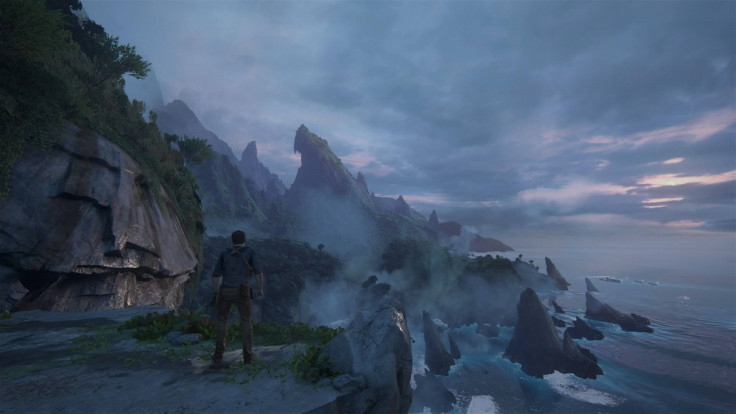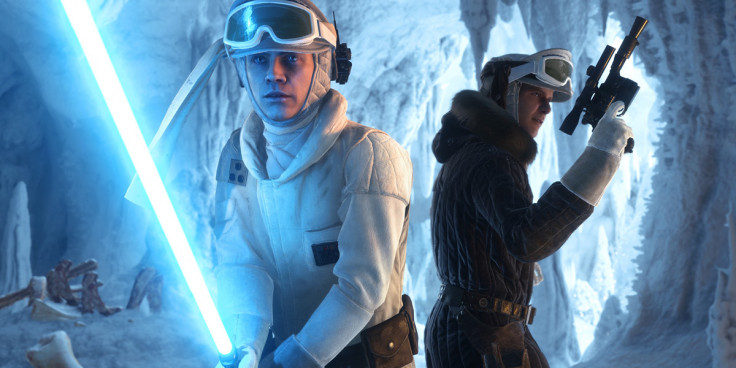Uncharted 4: How Naughty Dog uses nostalgia to inform Nathan Drake's greatest adventure

Letting go of the past is hard. Our memories, from our most cherished to those too painful to share, ripple through our lives, informing our most mundane decisions, our hardest choices, and for better or worse, turning us into the people we are today.
The trouble with memories, though, is that they're wildly inaccurate. Looking back, we become the unreliable narrators of our own lives, fondly recalling our highest highs as nothing less than sheer, blissful perfection. As much as the good times can act as a salve, offering a means of escape from our present day struggles, they can also burden us with another problem − that of nostalgia.
Selective memories
In Uncharted 4: A Thief's End, it's an issue an older, slightly greyer Nathan Drake struggles with. Our once-dashing young adventurer − who, to be frank, is still rather dashing − is now living a mundane life, but one surrounded by the trinkets of adventures gone by, early on in the game it is made painfully obvious to the player that he can't quite shake off his own nostalgic hangover.
Drake still pines for adventure, and for a reunion with the person he used to be. The glory days, surely, haven't passed him by? Well, no, they haven't. Not quite. There's still time for one final hurrah, and as much as I'm glad Naughty Dog chose to revisit arguably its greatest franchise before cutting the cord for good, I'm just as thankful that Drake's tale is over.
I'm not saying that because I'm worn out by the franchise, or because Drake as a character has outstayed his welcome. Nor am I foolish enough to think this will be the final Uncharted game we see. After all, Naughty Dog might be done with the series, but given A Thief's End has already surpassed 2.7 million in sales, don't think for a split-second that Sony is.
No, my relief at seeing Drake's yarn finally reach its end stems from a recent trend that's quickly establishing itself as the norm in the games industry: the manipulation and monetisation of our memories.

Nostalgia as a marketing tool
Nostalgia − now more valuable than ever in our world of reboots and remasters − is becoming a quick-fix marketing solution. An easy way for studios and publishers to lure players in without a second thought for how it reflects on them, or whatever it is they're flogging.
Take Star Wars: Battlefront. EA's shooter is a game I adore on many levels, but it's one that ultimately wears the Battlefront name as a disguise. A lack of a single-player campaign, prequel content and space combat, means despite its title, DICE's Battlefront is more of a pale, albeit gorgeous, imitation of the series many grew up with. Does that matter because the name alone drummed up hype? Seeing those words flash on screen during that very first E3 trailer was enough to make most fans giddy, and guaranteed sales years before the game had even hit shelves. Job done.
A more recent example is Activision's Call Of Duty 4: Modern Warfare Remastered, which is being shipped exclusively with upcoming new title Infinite Warfare. Given the Infinite Warfare trailer is now the most disliked video game trailer in YouTube history, it's safe to say many fans aren't too happy to see the shooter being taken in a space-faring direction.
The remaster is the ace up Activision's sleeve. The publisher is acutely aware that fans have been clamouring for a Modern Warfare remaster for years, and by packaging it exclusively with Infinite Warfare, there's a good chance the game will sell very, very well, despite the unprecedented backlash.
Holding us to ransom using our fondest memories might be a cynical contingency plan, but it's one that's going to work wonderfully. It doesn't matter that most fed-up fans know they should vote with their wallets and give Infinite Warfare a pass, because the chance to relive the glory days will be an opportunity too good to miss.

Celebrating the past, embracing the future
When I saw the trailers for Uncharted 4, I was fearful Naughty Dog would be following a similar pattern. It would've been so easy for the developer to play it safe and deliver a by-the-books Uncharted game that utilized cheap fan-service to pander to our hazy, rose-tinted memories of the series, rather than take the series forward. But they didn't.
The teases of this being Nathan Drake's last adventure weren't a marketing trick designed to rope us back in, it was exactly that. By the time the credits roll, players know how his story has drawn to a close. It also dodges the bullet that hit Uncharted 3: Drake's Deception squarely in the chest. The threequel is seen by many as the worst in the series, simply because it missed the chance to push boundaries as Uncharted 2: Among Thieves had done back in 2009. Instead, Naughty Dog used lessons learned on The Last of Us to breathe new life into the franchise.
It did away with the trite supernatural elements that had become a mainstay, and reframed the narrative to focus on the characters themselves, delivering an adventure that's not only more mature − dealing with weighty issues, such as marriage, loss, and regret − but also emotionally richer and more intimate than any of its predecessors.
Even the signature set-pieces take a back seat, and although there are still plenty of jaw-dropping moments, they feel more organic, more restrained. This time around, it's clear storytelling and the lives of the characters themselves are the stars of the show. Uncharted 4 then, is anything but a cynical cash grab that milks the franchise's legacy. It's an evolution; a definitive finale that celebrates and is informed by the series' past, using it to pave a new path.
So, as we wave goodbye to Nathan Drake for the final time, it feels fitting to say thank you, Naughty Dog. Thanks for the memories, and thank you even more for knowing it was time to let go.
For all the latest video game news follow us on Twitter @IBTGamesUK
© Copyright IBTimes 2025. All rights reserved.


















